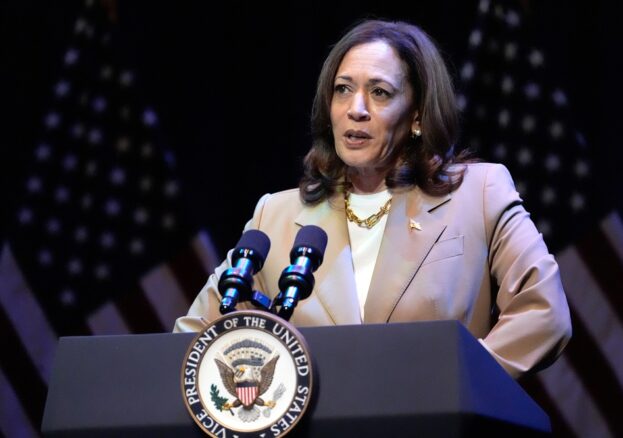
As America heads to the polls next month, the world watches a historic moment unfold. Among the candidates vying for the presidency is Kamala Harris—a woman whose journey from Oakland, California, to the corridors of power in Washington, D.C., is both a symbol of progress and a reflection of the long, winding paths that Black women have travelled in their fight for equality and justice.
Kamala Harris’s candidacy is more than a campaign; it is the continuation of a legacy that stretches across generations. Her presence on the political stage speaks to the perseverance of countless Black women who have fought to break down barriers, including pioneers like Sojourner Truth, who spoke out for both women’s and racial equality; Harriet Tubman, whose courage and leadership on the Underground Railroad saved countless lives; Mary McLeod Bethune, who championed education and civil rights; and Shirley Chisholm, the first Black woman to run for the U.S. presidency. Their groundbreaking work laid the foundation for future generations. In the UK, figures like Olive Morris, a prominent activist for racial and gender equality, and Doreen Lawrence, whose relentless advocacy following her son’s tragic murder brought attention to issues of racial justice, are similarly part of this ongoing struggle. Harris’s life story, shaped by migration, struggle, and resistance, connects to this broader narrative of Black resilience—not only in the United States but across the globe, including here in the UK.
Kamala Harris’s rise is not isolated; it is deeply connected to the historical struggles and achievements of Black women. Her mother, Shyamala Gopalan, left India to pursue a career in cancer research, while her father, Donald Harris, emigrated from Jamaica to become a distinguished economist. Together, they instilled in Kamala a deep sense of justice and commitment to equality—values that have guided her throughout her life. From her early days at Howard University, a historically Black institution, to her legal career and rise in politics, Kamala Harris’s journey has been shaped by a relentless pursuit of service and justice.
Her story, though personal, is deeply connected to the collective history of Black women. It echoes the struggles of pioneers who paved the way for Harris and others. In 1972, Shirley Chisholm became the first Black woman to run for president, and her groundbreaking campaign serves as an important precursor to Kamala Harris’s own run. The barriers that Chisholm faced—racism, sexism, and exclusion—are challenges that Kamala Harris still contends with today.
Kamala Harris has demonstrated remarkable resilience and strength in her political career, notably in her ability to stand up to former President Donald Trump. Her incisive questioning during Senate hearings and her forthright criticism of Trump’s policies, especially on issues like immigration and criminal justice, showcased her willingness to confront powerful figures and challenge injustices head-on. This ability to stand firm against a controversial figure underscores her commitment to holding those in power accountable and fighting for the values she believes in.
As California’s Attorney General and later as a U.S. Senator, Harris earned a reputation for tackling tough issues, including human trafficking, environmental justice, and criminal justice reform. Her work in these areas underscores her commitment to addressing the systemic inequities that have long plagued marginalised communities.
Kamala Harris’s candidacy represents a larger struggle for Black women, who have historically been at the forefront of movements for social change yet often excluded from positions of power. Her rise to prominence demonstrates the progress that has been made, but it also highlights the work that remains. For many Black women, both in the United States and the UK, Kamala Harris’s candidacy is a powerful symbol of what is possible when barriers are broken and ceilings are shattered.
Her presence on the world stage reminds us that leadership is not just about policies—it is also about representation. Seeing Kamala Harris in positions of leadership sends a powerful message to young Black girls everywhere: that they, too, can aspire to the highest levels of power. Her story is a reminder that representation matters, and that the fight for justice and equality requires both personal and collective action.
Kamala Harris’s vision extends beyond the United States. Her platform addresses issues that are global in scope, including climate change, healthcare, and economic inequality. These are challenges that resonate deeply here in the UK, where similar debates about race, class, and justice are ongoing. Her candidacy invites us to reflect on how we can contribute to building a more just and equitable future, both at home and abroad.
As America prepares to cast its vote, Kamala Harris’s journey serves as a powerful reminder that the fight for justice is far from over. Her candidacy is a call to action for all of us to continue the work of breaking down barriers, challenging systems of oppression, and ensuring that future generations have the opportunity to thrive. Her story is not just about personal success—it is about the collective progress of Black women who have fought, and continue to fight, for their rightful place in history.
Kamala Harris’s rise is a testament to the power of perseverance and the enduring influence of Black women’s activism. Her story is part of a larger global conversation about race, leadership, and the future. It invites us to reflect on the lessons of the past while looking forward to the road ahead—a road shaped by the resilience, strength, and vision of Black women.
